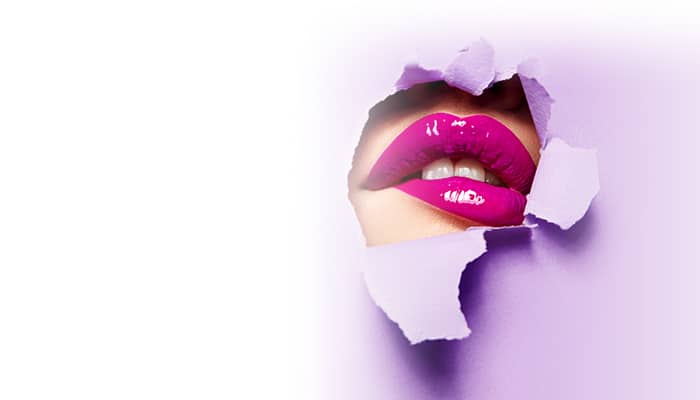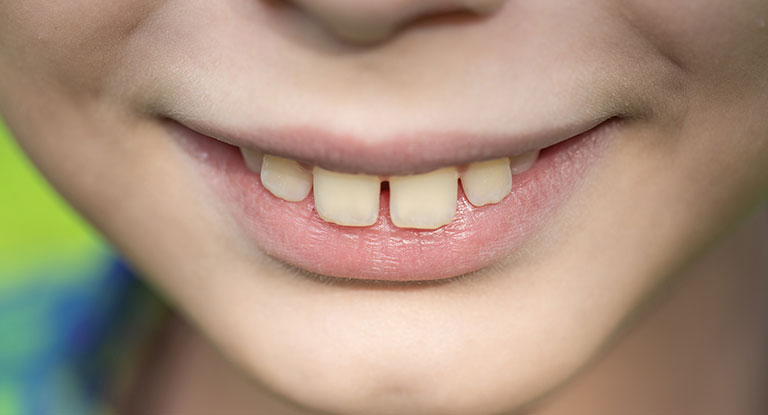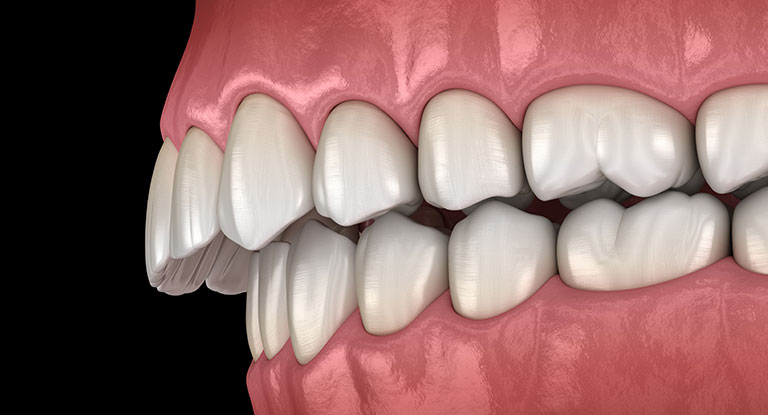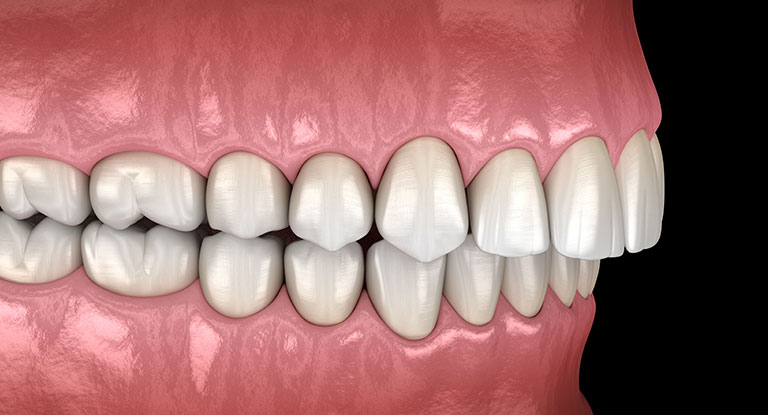

An overbite occurs as a gap that appears between your upper and lower front teeth when your mouth is closed. This type of malocclusion is quite common; it occurs when your upper front teeth sit too far from your lower front teeth.
Overbite correction is commonplace; it has been corrected successfully using braces or surgery for severe cases. There are quite a lot you should know about this dental malocclusion.
You should read further to find out more about the causes and how it can be corrected.

An overbite is a vertical or horizontal gap between your top and bottom front teeth when your jaws are closed.
A horizontal overbite makes your upper front teeth to push forward towards the front of your mouth. It is also called an overjet or might be referred to as “buck teeth” when the protrusion of the front teeth is pronounced. An overjet and open bite can occur alongside in some cases, which causes a vertical gap between the upper and lower teeth.
An overbite is considered normal when the vertical gap between the upper and lower teeth is 2-4mm apart.
A deep bite occurs when the vertical gap between your upper and lower teeth is 4-6mm or more. The upper front teeth may cover the lower front teeth completely, even digging into the lower gum in severe cases of overbite.
Different things can cause an overbite. Some of the common causes include genetics and heredity factors — thumb sucking and tongue thrusting in children, nail-biting, excessive chewing on hard substances such as a pencil or pens — overusing a bottle or dummy as a baby and abnormal jaw development in the foetus.
There are two types of Overbite; namely; the skeletal and dental overbite.
The skeletal overbite results from irregular jawbone development while a dental overbite results from dental problems such as overcrowding or pressure from thumb sucking.
An overbite occurs when your upper jaw extends over your lower teeth, while an underbite occurs when your lower teeth sit in front of your upper teeth.

An overbite may lead to some problems if left untreated. These include;
Does your child have an overbite and you are considering whether you should correct it — and what should be the right way?
Overbite correction is better corrected early in childhood when the bones have not fused in place. Treating overbite in an adult is harder because the jawbone and tooth roots have been developed, firmly and surgery might be recommended for correction.
The process of surgery for an overbite correction might get you scared, but the benefits of fixing misaligned teeth will outweigh the little discomfort you will experience while taking the treatment.
You cannot fix overbite naturally; braces or surgery will be needed to correct an overbite. However, you can prevent some cases of overbite when you cure some childhood habits like thumb sucking, pencil chewing — overuse of dummies for babies.
You may need to see an orthodontist if you have a severe overbite or you can call 020 71834091 to book an appointment.
Correcting overbite is straightforward. Our orthodontist at Smile Works Dental should be able to recommend the best way to fix your overbite. You can correct your overbite by getting overbite braces — taking jaw surgery or using a retainer.
You may be concerned at first when you notice you have an overjet or deep bite; want to know more about how you can correct it at this point?
The first thing you should know is that an overjet overbite is normal because the gap between your teeth is around 2-4mm, you need not worry that your upper front teeth will hang over the lower one.
However, an overbite can be corrected in different ways. The severity and the causes of the problem are the factors that can determine the treatment option that will be adopted. Your orthodontist will know the best treatment he or she will use to correct your overbite from the diagnosis.
The various treatment options that can be used for overbite correction are given below.
Braces are very useful in fixing this type of malocclusion. Most cases of overbite can be corrected with braces. Treatment with braces must be followed up with a retainer to achieve a permanent result. Braces treatment may take up to two years or more based on severity.
Some people do not feel comfortable when they wear braces, especially metal braces. Your orthodontist may recommend the clear braces which are more comfortable and less noticeable than traditional metal braces. Your orthodontist may need to show you before and after pictures of overbite treatment with braces. This will go a long way to motivate you to endure the little discomfort during treatment.
To find out more about the treatment of overbite using braces, you can call 020 71834091 to speak with a customer care representative. Our orthodontist at Smile Works Dental will be glad to help.

These are invisible aligner braces that cannot be noticed easily when used for overbite correction. They are effective for correcting mild and moderate cases of overbite. The Invisalign braces are removable and very comfortable for use. They apply pressure to move the teeth into the right position. The Invisalign braces are fabricated by your orthodontist to fit your mouth, and they are to be replaced every two weeks.
Overbite correction with Invisalign may give quicker result than your regular metal braces. Some adults prefer using this for correcting overbite because of it is less noticeable, which helps to maintain a more professional appearance or have the flexibility of removing their braces.
Invisalign braces may not be suitable for every patient. However, taking a Visit us will help you know if your overbite can be treated with Invisalign braces.
Using a retainer helps keep your teeth in position. Some cases of overbite can be fixed with removable retainers. They work just like braces, gradually moving the teeth into the correct alignment. This treatment may not be used for you if it will not help to achieve the desired result. Your orthodontist is in the best position to determine that based on his or her diagnosis.
Retainers will be needed to be worn after any overbite treatment to keep the teeth in the new position.
Surgery may be required to correct a skeletal overbite. It is also called orthognathic surgery in which the jaw is realigned to correct the gaps between the front upper and lower teeth. Surgery can help improve the shape of your jaw that resulted from improper jaw development in children. Your facial appearance may change as a result of the operation.
Overbite treatment with surgery may involve removing some of your teeth, repositioning the jaw — inserting screws and adding plates to hold your jaw in place.
There is no visible scarring since all the procedure is carried out inside the mouth. You may be required to stay at the hospital for a night or two after your surgery after which you will only be required to go for a regular check-up. Your orthodontist may ask you to take between 2-4 weeks off school or work for proper recovery. Aligners will need to be worn for months after surgery to help the jaw align permanently.
An overbite can make you conscious of your look, especially if your case is severe. It can be painful, especially a deep bite which pushes back your lower jaw and put pressure on the nerves. This may lead to facial pain and headaches.
Severe cases of overbite may change the shape of your face because your lower jaw is further forward. The orthodontist can show you pictures of what your face will look like after treatment to motivate you to endure the little discomfort during treatment.
An overbite can be corrected with braces or with surgery in severe cases. Your orthodontist will advise you on the best treatment option to correct your overbite.
Contact Us
At Smile Works Dental our an expert Orthodontist who can help you correct your overbite. Visit us at Harley Street, London or call on 020 71834091 today to book an appointment.